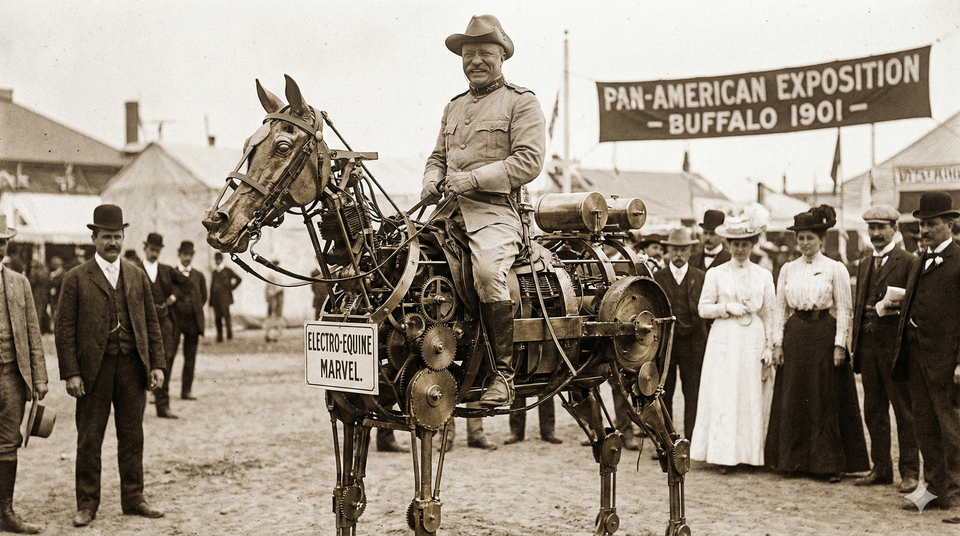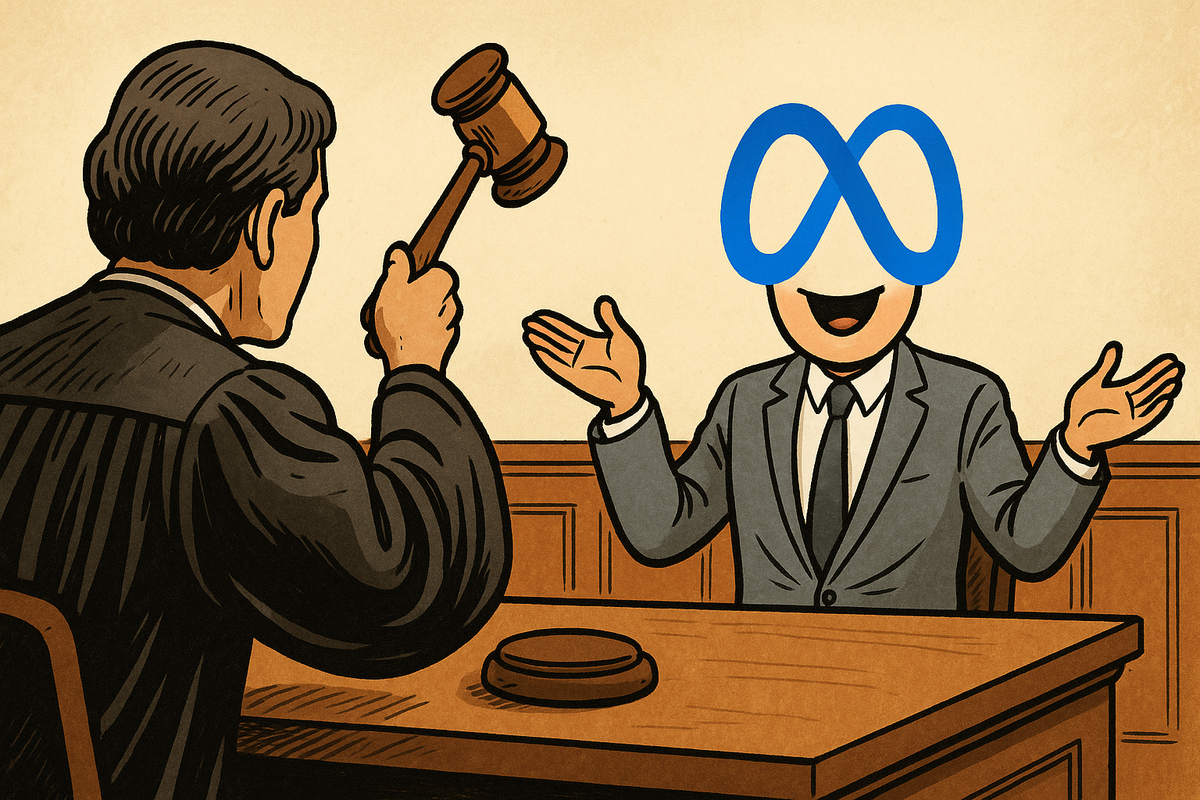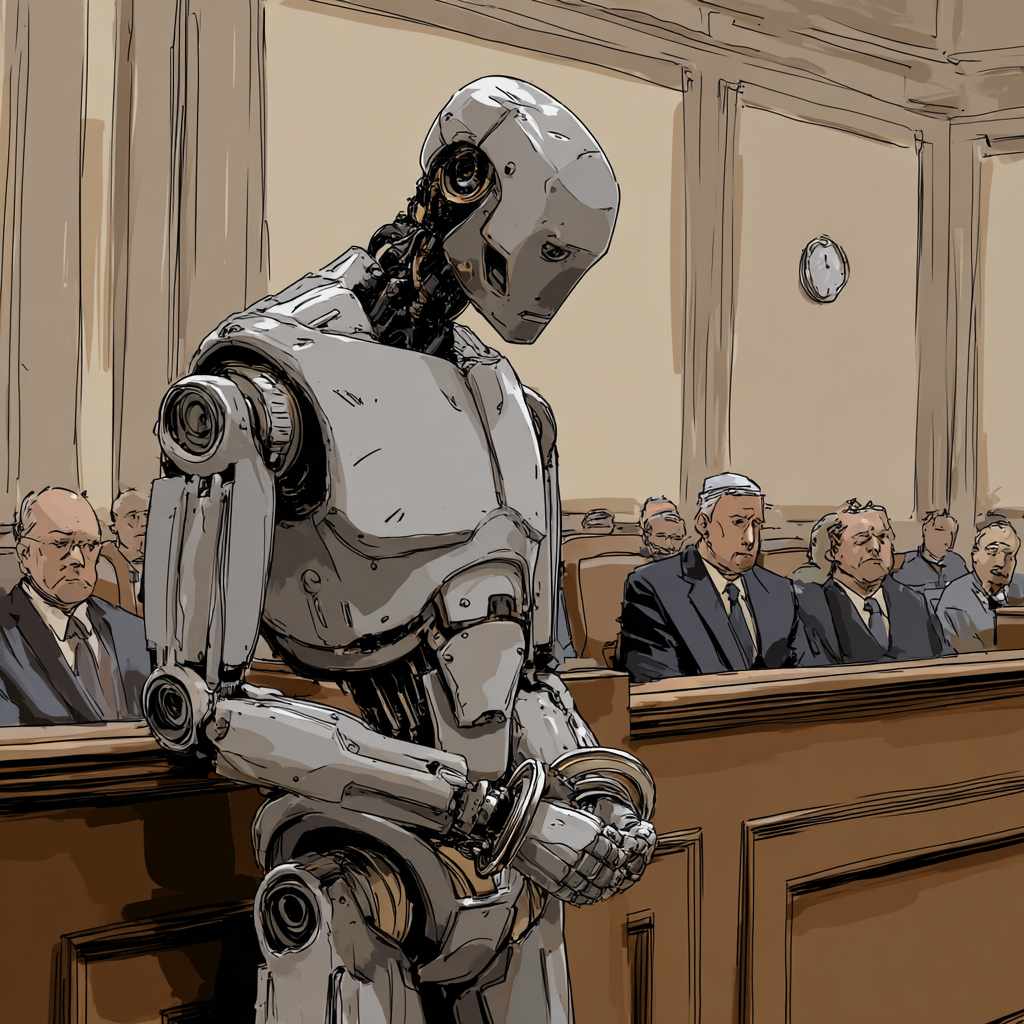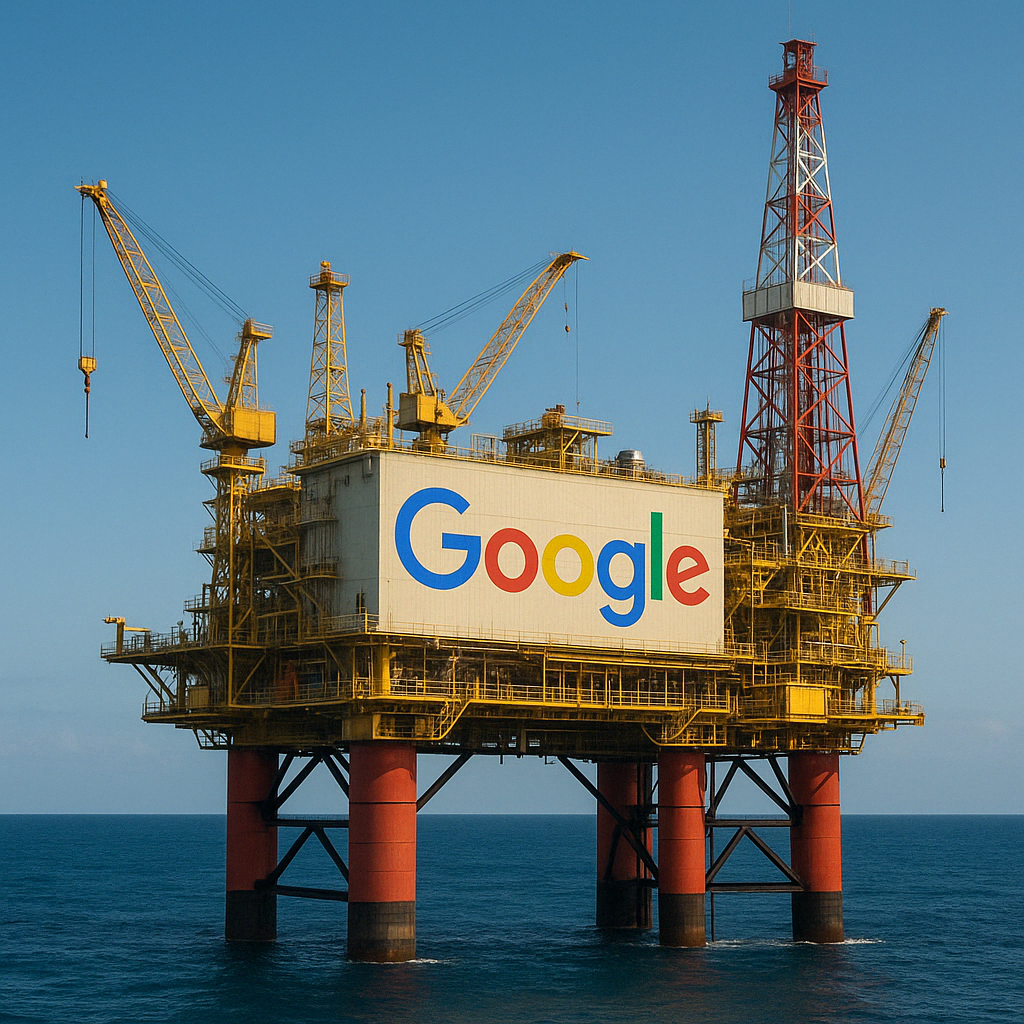Failing to Realize Why Modern Antitrust Keeps Failing

After his last op-ed in The New York Times completely and utterly failed to sway the judge in Google's antitrust case to enact harsh remedies, Tim Wu is back with another essay, aiming to escalate the general argument to a higher level. Here, his target is Meta, which just won their own antitrust case, with a different judge ruling that the government failed to make the case that the company had an illegal monopoly in the social apps space. "How Can Anyone Seriously Doubt Meta Is a Monopoly?" is the headline I got served in my RSS feed, but it has seemingly since been tweaked to "The Bad Reasoning in the Meta Antitrust Ruling Isn’t Even the Worst Part". The first headline was clearly better – albeit silly, as a federal judge literally just did doubt that, legally – the second one is a mouthful, but again, aims to take the argument broader.
In this way, Wu's op-ed is similar to one that the NYT ran last February from Lina Khan. It was a remarkable read because nearly every point she made was wrong. And now Wu is trying to give her a run for her money.
But to dwell on the shortcomings of Judge Boasberg’s reasoning is to overlook something even worse: the message that his ruling sends to the country. The United States is in a precarious moment when it comes to the rule of law and democratic accountability. Unchecked wealth and corporate power have led many to doubt that our system is fair. Judge Boasberg’s ruling only fortifies the impression that the world’s wealthiest and most powerful corporations are above the law.
I mean, maybe the ruling gives that sense to others, maybe it doesn't. But obviously it's not the judge's job to make legal rulings so that the country will nebulously feel better about inequality. This is, basically the argument Wu attempts to make in the entire peace. Forget the law, judge, think about the vibes!
A chief goal of the Sherman Antitrust Act of 1890, which the government accused Meta of violating, is to make clear who is actually in charge of the county. As President Theodore Roosevelt explained in 1901, the “vital question” is whether “the government has the power to control the trusts.” He understood that unaccountable power is a threat to the Republic and that the spectacle of untouchable elites fosters widespread resentment.
Humorous typo aside – "county"? I thought we were thinking bigger Tim! – as the name itself highlights, this law is 135 years old. It pre-dated the Wright Brothers flight by just over a decade. Basically no piece of technology we use today had been invented yet, except perhaps the automobile, but only just barely. To say that the world is different today would be the understatement of the century – actually, of two centuries. We can all agree with President Roosevelt's general sentiment – outlined a mere 124 years ago – but that doesn't change the fact that the antitrust theories of not just the 19th century, but even the 20th century, are wildly outdated and unequipped to suit the 21st century. And yes, both the Meta and Google cases highlighted this reality in different ways.
Tuesday’s ruling is clearly wrong on the merits. The government charged that Meta, then called Facebook, broke the law when it bought up its competitors Instagram and WhatsApp in 2012 and 2014. Judge Boasberg threw out the case by concluding that Meta lacks monopoly power now, when the relevant question should have been whether it had monopoly power at the time.
No, it was not wrong on the merits. The argument against Meta was poor and misguided – to the point where it was initially thrown out before getting reworked with the bare minimum tweaks to get it to trial. One major issue with these antitrust cases is that they're being litigated in hindsight – which is both obviously but obviously an issue with tech in particular, as it moves so fast to as make most central arguments moot by the time of trial. So Wu's argument here is that they should punish Meta (then Facebook) for past rule-breaking even though the government obviously looked into and approved their deals at the time. Why? In part because both deals weren't taken all that seriously back then by many. The Instagram deal, in particular, was mocked. Not by all of us, mind you! But my blog post at the time clearly failed to convince anyone that perhaps in the future, these would grow into massive companies under Facebook.
Essentially, Wu would prefer the judge makes the ruling based on the success of the deals that most at the time didn't think would be successful – and probably no one did to the extent that they have! And he doesn't want the judge ruling on the case for how things stand now. So he would like the judge to rule on the case based on some random moment in time where Facebook held monopoly power over social networking. Okay.
But even to deny that Meta now holds a monopoly in personal social networking (sharing with friends and family) means ignoring a lot of direct evidence to the contrary. The government presented records of the company’s extraordinary and durable profits ($87.1 billion operating profit on $164.5 billion in revenue in 2024, for example), which is a textbook signal of monopoly power. The company has also subjected users to more and more ads, removed privacy protections and otherwise reduced the quality of its service without losing its user base, which is hard for a company facing competition to do.
Then perhaps the government should make the case about Meta's ads business – as they're also currently doing with Google – not with the "personal social networking" silly moment-in-time made up market definition. But again, that's not the case that the government made – and undoubtedly in part because of Google's position in said ad market.
Those failings aside, Judge Boasberg’s ruling is also flawed in a broader sense. Does anyone seriously doubt that Meta is the kind of company that antitrust laws were designed to restrain? In the 1980s and 1990s, judges held AT&T and Microsoft to account for antitrust violations, despite their protests. In the 1940s, when the federal judge Learned Hand pondered a similar case against the Alcoa company, which dominated the aluminum market in the United States, he granted that there were “legal niceties” in which one might get “entangled.” But he concluded that “if we hold that it is not a monopoly,” everyone not caught up in those niceties would “quite rightly I think, write us down as asses.”
Why yes, I do have some doubts that laws written 135 years ago would foresee the rise of a social feed ad network. The rest of Meta does not make any real money – famously so in the case of VR and now AI – so it's all just that one business. Also, the Microsoft "victory" was more similar to the Google one in that nothing really changed as a result. People like Wu love to argue that it changed everything, leaving out what happened after the victory that neutered the remedies. What disrupted Microsoft was natural market forces. At best, you can say they were slightly distracted by the case, but they would have been disrupted regardless.
Also, Microsoft is now a $4T company. What a great victory for antitrust!
I don't know enough about the 1940s aluminum market to have a strong opinion there. But it strikes me that the market and time were probably different from, say, mobile applications in 2025. At least the 1940s were closer to the 1890s than we are now...
Judge Boasberg’s ruling in the Meta case follows a ruling last year by the federal judge Amit Mehta, who found that Google is an illegal monopoly — yet this year could not bring himself to impose on Google a strong remedy. Such decisions effectively bless one of the major power imbalances of our age. They signal to companies that spending millions of dollars on lawyers will be repaid with billions of dollars in profit. And they reinforce the tech industry’s sense of impunity — its belief that it is an untouchable sovereign above the control of any mere human.
Project much, my guy? Again, it is not the judge's job to make a ruling that Tim Wu believes will better balance power inequality in the US. The job is to look at the case in front of you and rule on that. And Judge Mehta did rule that Google was a monopoly, but he also rightfully concluded that the remedies put forward wouldn't actually change where Google had the monopoly. And that the market was already doing its own thing to change that market dynamic.
I do think there was a better case to be made about not being able to leverage the Search monopoly going forward to unnaturally prop-up Google's other services – which is something Microsoft was also regularly found in violation of for years after their antitrust issues – like, say, AI.
Despite a decade of Meta-related scandals and whistle-blowers, no public authority in this country has been able to hold the company meaningfully accountable for its behavior — a striking failure of our political system. Unfortunately, this ineffectuality is part of a broader trend. Many policies enacted in the 20th century to maintain economic fairness in the United States have been undermined or gutted: labor law, financial regulation, telecommunications law and taxation, among others. For decades those laws forestalled a collapse into a two-class society, avoiding the extreme class tensions that have upended other republics.
This is obviously oversimplified, but I'm not even sure I really disagree with this at the highest level. But the issue here is that this is unrelated to this antitrust case, which was a weak case around a very specific set of circumstances. It was not the judges job to rule if Meta should be punished for, say, privacy scandals here.
When Roosevelt embarked on his antitrust campaign in 1902, he did so with the view that it was necessary to preserve democracy. His was a moment like ours, with a dangerously unbalanced economy, extremist ideologies vying for adherents and a near-revolt of American farmers in the Midwest. But the federal and state governments diffused that anger by taming the railroads, regulating the banks and breaking up most of the big trusts.
This time around we are on track to do nothing of the kind. Congress has done little to restore economic balance and courts are showing themselves to be out of touch with economic realities that any American could describe. It is no wonder the population is growing increasingly cynical — and more and more ready to look to ideologies that promise to upend the entire system.
Beyond the overtly political statement, here we go again with references that are over a century old. Even if you agree that there are some parallels with the United States as it was 123 years ago, obviously, the same laws and policies aren't going to make sense in 2025. Instead, what Wu should argue for here is a new Roosevelt, someone to rally the country to come up with and pass new laws to handle such issues. Laws written in the 21st century, to tackle challenges in the 21st century.
But that's a lot harder than bringing forward weak cases and making outdated arguments around old laws. And it's certainly harder than writing endless and pointless op-eds.










